Passivity, compliance, peace: some might think that Quakerism is about skirting conflict and trying to resolve discourse in the quickest way possible. That couldn’t be further from the truth.
Quakerism has embedded tools for understanding deep within its core values, providing powerful strategies that have been used for generations to navigate difficult political moments and disparaging views. It is the job of a Quaker education to equip its students with these devices.
According to the Abington Friends School website, the first Friends schools were founded in the late 1600s in England, “as a way to educate Quaker children separate from the Anglican, and Catholic religious influences often found in English schools at the time.”
These schools were generally an extension of the Meeting, founded as a place for children of Meeting attenders to receive an education in line with their religion. Quaker education has historically been drawn from both the faith and a long history of fierce activism, taking inspiration from leaders such as Elizabeth Fry, Benjamin Lay, and Bayard Rustin.
Today in the United States, there are around 76 Quaker schools, according to Friends Journal. While Quaker education may feel normal to many AFS students, there are crucial differences between a Quaker education and education at a different institution.
We interviewed Upper School Math and Science teacher John Garnevicus about his experience as an educator at Friends schools for 18+ years as well as his personal experiences as a practicing Quaker.
Garnevicus said, “I’m always excited when students think about and take control of the Quaker piece of the school. I think the thing that makes Quakerism at school [preferable] is the idea that while hierarchies have to exist in a school, the actual humanity of each person in that space is equally valuable… You belong equally, as much as anyone else, regardless of how much power they might have in the power structure of the school.”
But how does Quakerism shape education beyond social interactions? What can Quakerism teach us about how to live in a world as politically divided as ours?
Yphtach Lelkes, assistant professor of communications at the University of Pennsylvania, describes “affective polarization” as “the degree to which Democrats and Republicans in the United States like or dislike one another.”
A 2021 poll by Pew Research Center found that nearly 60% of American adults say that having political conversations with those they disagree with is “stressful and frustrating.” Political conversations, however, are getting harder and harder to avoid.
Political polarization is causing our current society to trend towards violence, rather than empathy, when encountering opposing viewpoints. This has made political conversations and connections across divisions even more difficult.
Political violence has become more common, with the assasination of the Democrat House Speaker Mellissa Hortman and her husband in their home in June, and the assasination of conservative activist Charlie Kirk on a college campus in September. In addition, Democratic State Senator John Hoffman and Republican President Donald Trump survived attempts on their lives in June 2025 and July 2024, respectively. These acts of violence serve as tangible reminders of the political unrest and division in our country.
Addressing the Upper School about the coinciding of the 24th anniversary of 9/11, two school shootings, and the assasination of Charlie Kirk, Head of School Nicole Hood said, “These moments shake us because they run so deeply counter to who we are at AFS, and to our Quaker testimony of peace. We are a people who object to violence in any form.”
Despite noting that Kirk’s views often ran “in opposition to Quaker commitments to equality and community,” she highlighted the importance of responding in a way that is in line with Quaker practice.
Hood said, “We believe there is that of God in everyone. Seeking the Light in others does not mean excusing harmful actions or agreeing with ideas that contradict our values. It means refusing to let hatred shape our response. It means believing—even when it is hardest—that every person carries something sacred within them, and that we are called to see it.”
This commitment to seeking the light in others and “refusing to let hatred shape our response[s]” helps to simplify what we feel called to do, say, or believe when atrocities happen. Quakerism provides us with practices to support this commitment, teaching us to open ourselves up to others’ beliefs.
For Garnevicus, Meeting for Worship is a space where he practices listening openly to those of different beliefs.

Garnevicus said, “When I hear a message in Meeting, my obligation is not to agree with the message. My obligation is to try to understand, particularly for a message I don’t agree with, where the other person is coming from… I don’t have to condone the message, I don’t have to agree with the message, but I’m trying to see where their inner Light exists… I’m trying to find some empathy even if I fully reject [their beliefs].”
This practice of leading with empathy and acknowledging the inner Light in everyone has led Garnevicus to find connection with those he previously did not understand.
“What I’ve discovered in these Meetings is that sometimes people who you often disagree with say something in that moment that you really like, and that opens a door a little bit. Even if you still have places of strong disagreement, at least there’s this other connective tissue where they’ve led you to something meaningful that maybe you hadn’t even previously considered… It’s always a powerful thing across difference to notice places where there’s wisdom even when it’s [from] people who sometimes frustrate you.”
Just as it is the job of a Quaker school to equip its students with the tools to be truth seekers and active community members, it is our job as students to take the devices we gain and make change at AFS and beyond.
Quakers have never shied away from creating real, tangible change. It is no longer enough to preach Quaker values in theory; we must put it into practice. Friends’ lineage of activism continues to the present day, with a group of Quaker Meetings suing the government over the policy of ICE being able to raid places of worship in Philadelphia Yearly Meeting of the Religious Society of Friends et al v. Department of Homeland Security.
Garnevicus said, “I think people often misconstrue Quakers as being super laid back and friendly, and that’s a misimpression. [When it was first starting], the name [was] the Religious Society of Friends of the Truth… These were truth seekers, who, [although] they often would and still do disagree with each other, tried to find the truth together. So, I think that kind of practice is incredibly important in the modern world and it’s incredibly important to find the kind of activism that you’re passionate about, and–in ways that are meaningful and truth-seeking–push for a better world.”
Whether through deep listening, forward-moving discussions, helping cultivate press at AFS, or taking part in organized protest, there are countless ways you can put Quaker principles and practices into use in everyday life.
Our Quaker education has gifted us with the critical skills to navigate the tumultuous political climate of the present day. We have a responsibility to put these practices into action, following the footsteps of the Quakers before us.
How do you already use Quaker values and action in your life? What else could you implement to cultivate future change?
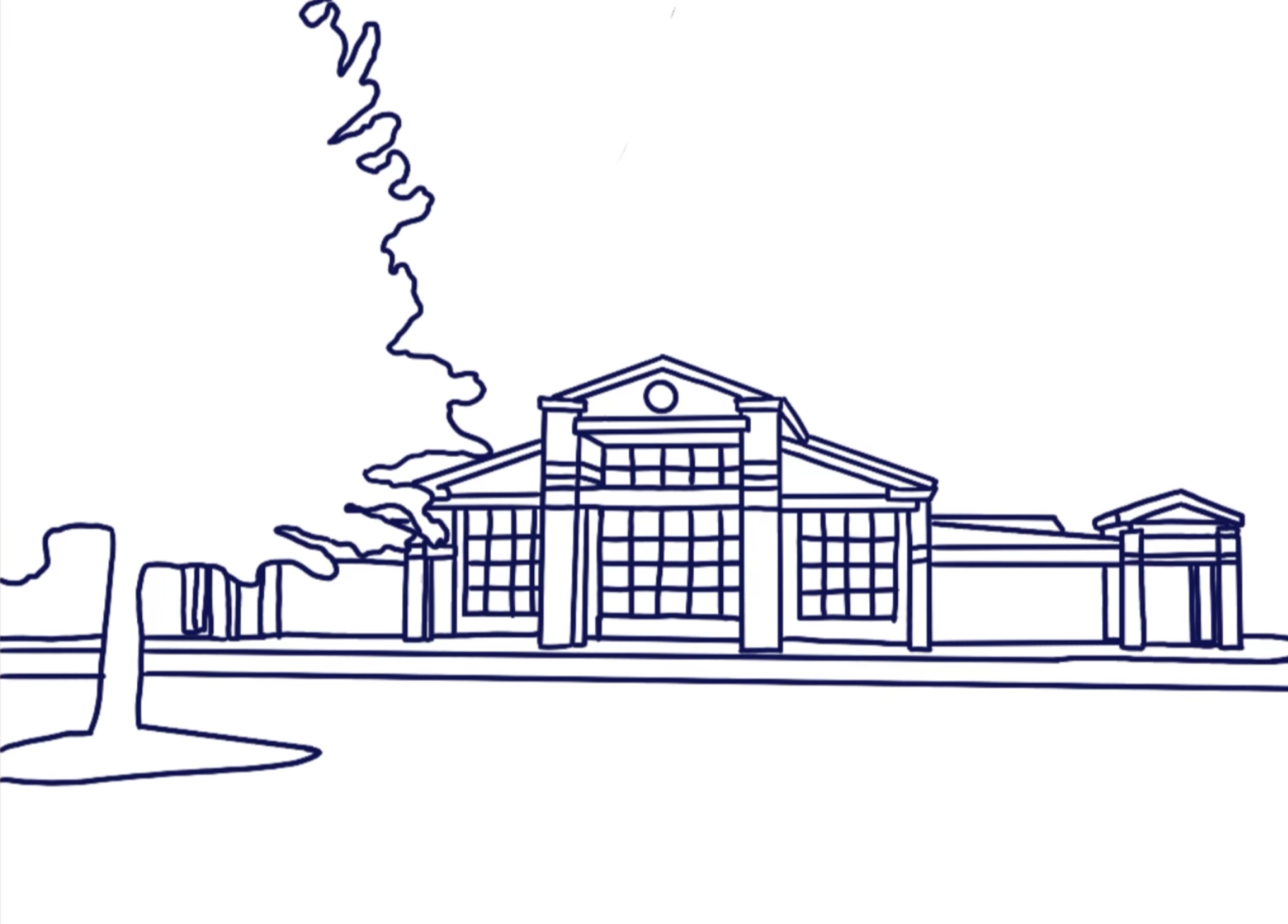





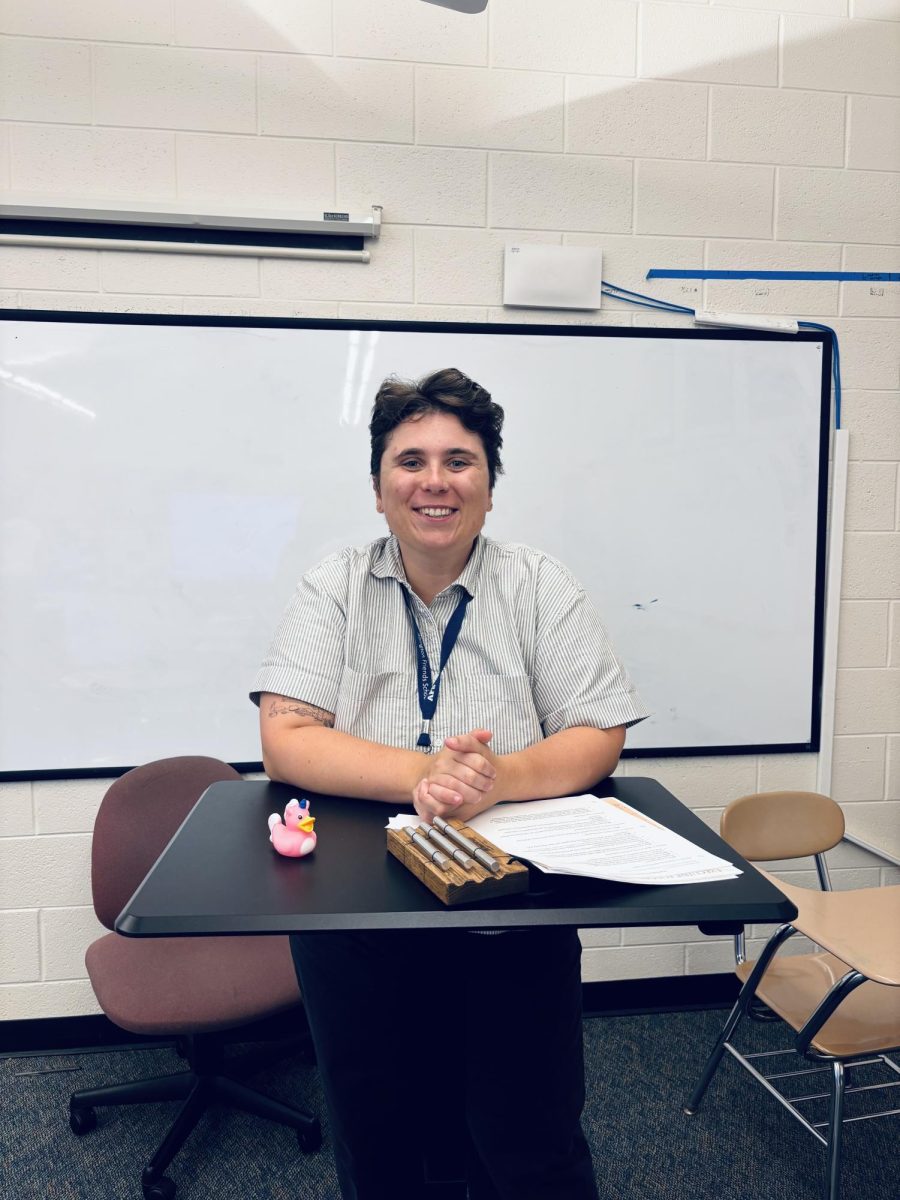
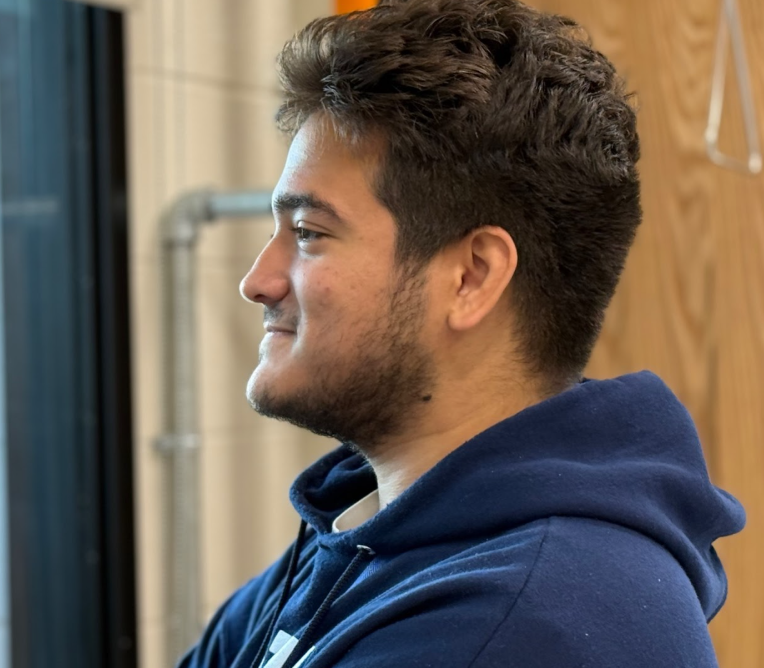
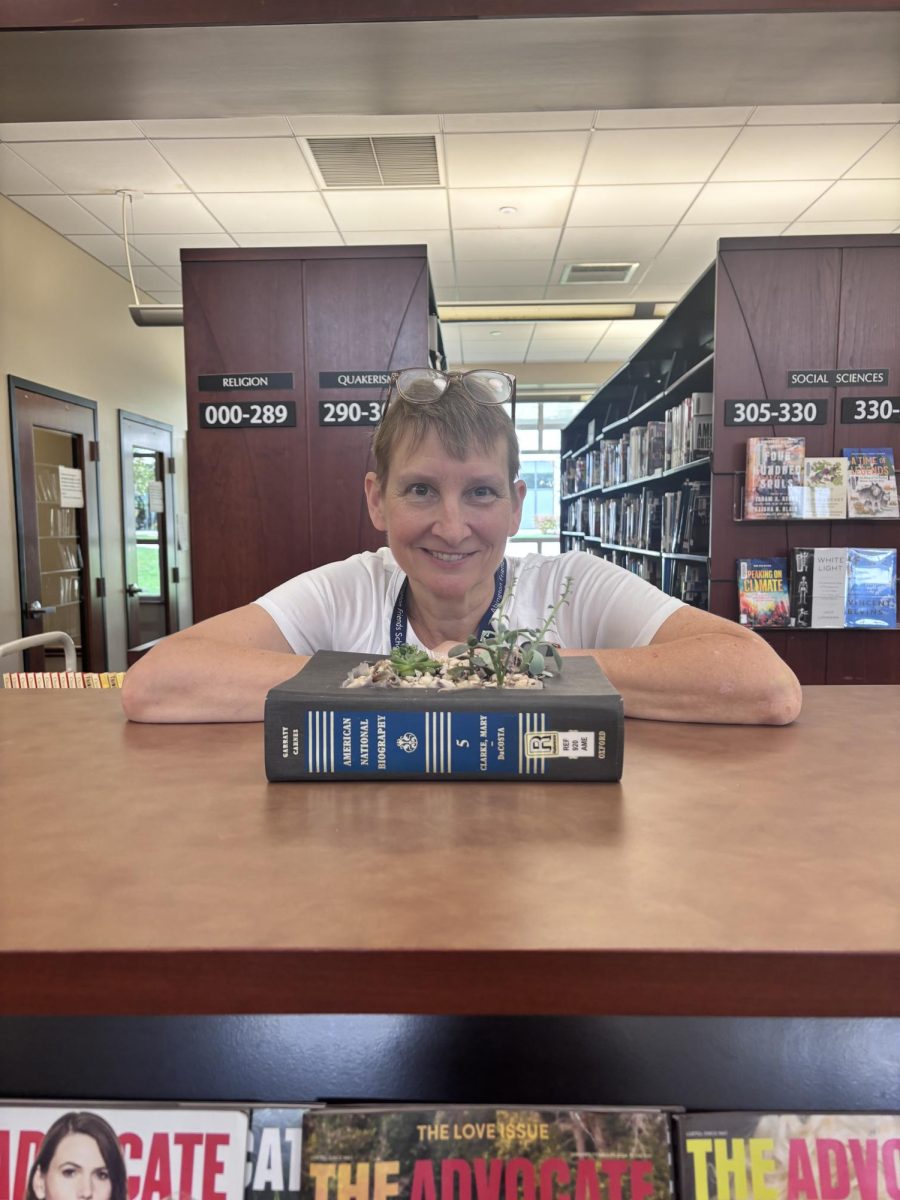




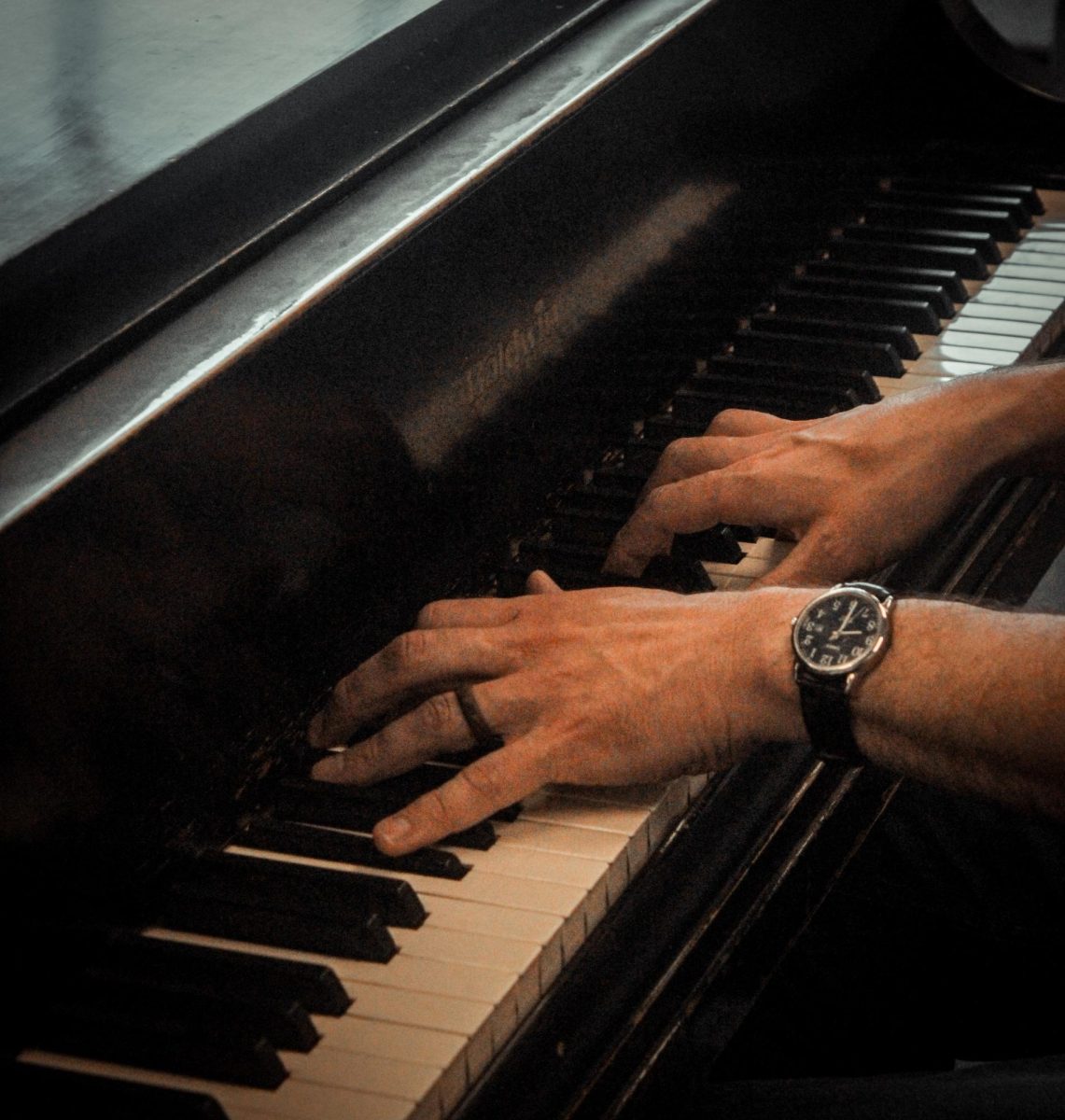
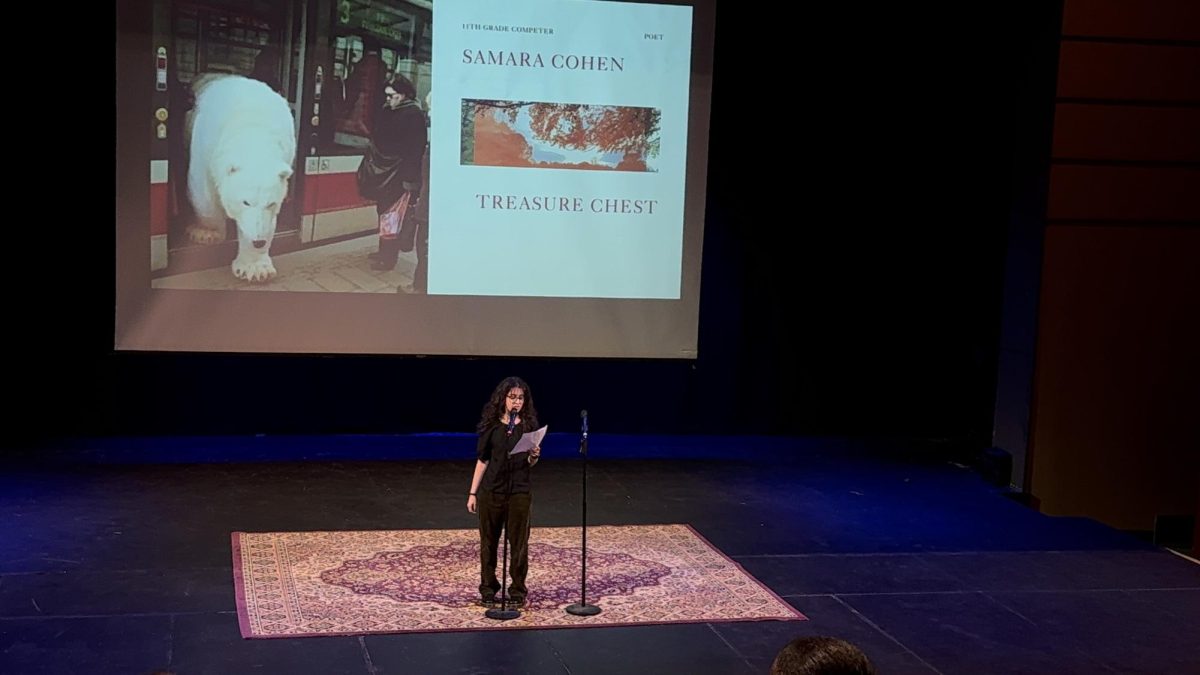
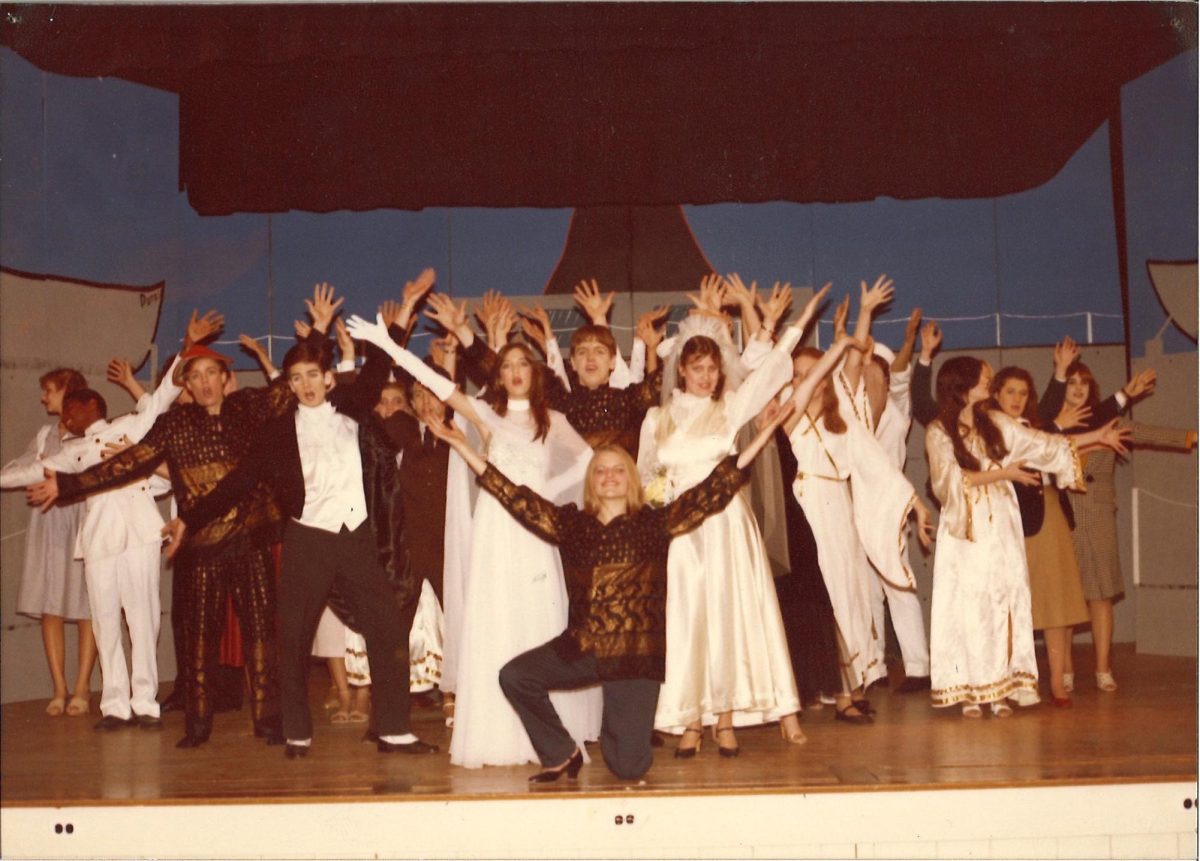


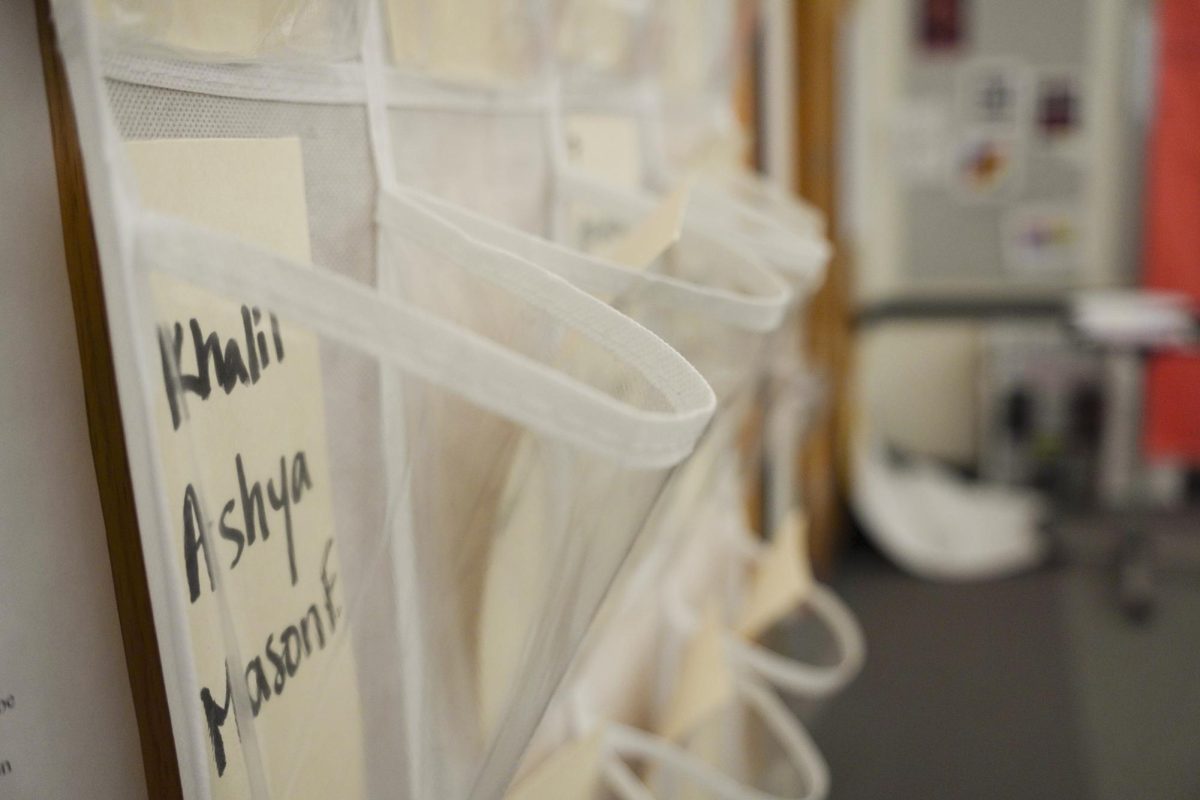




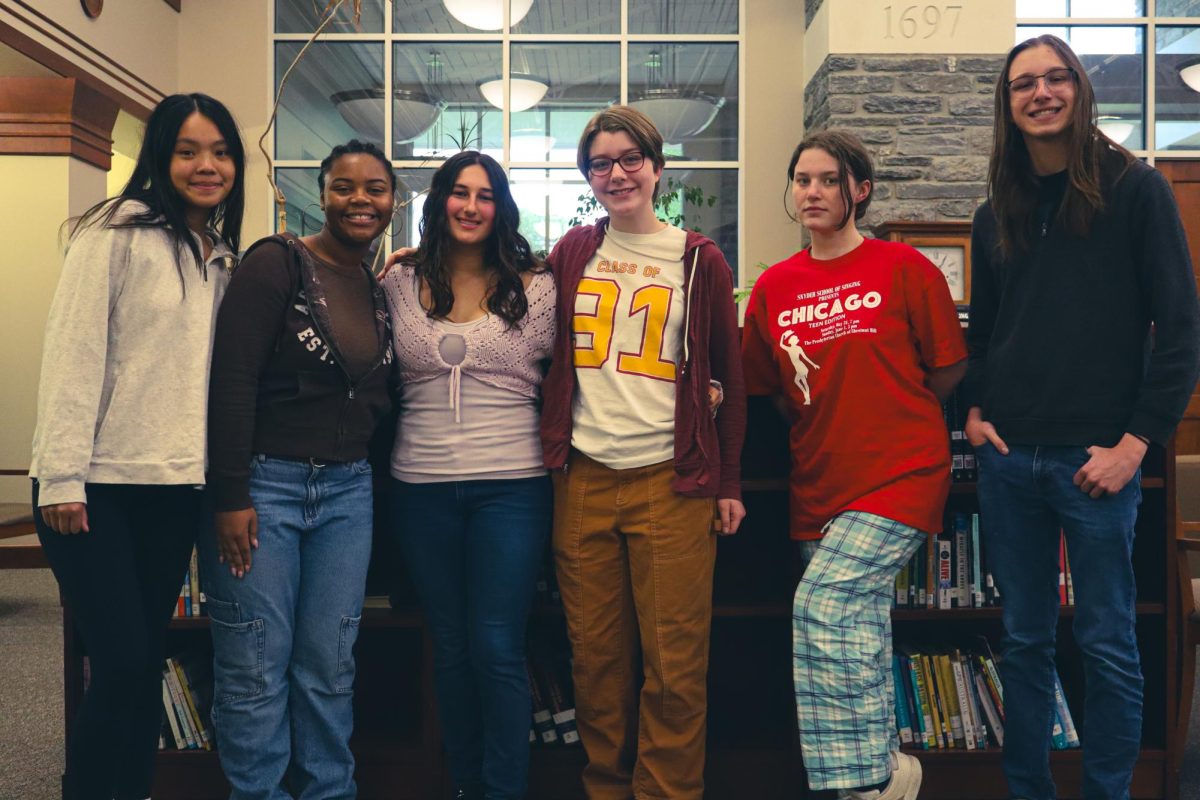

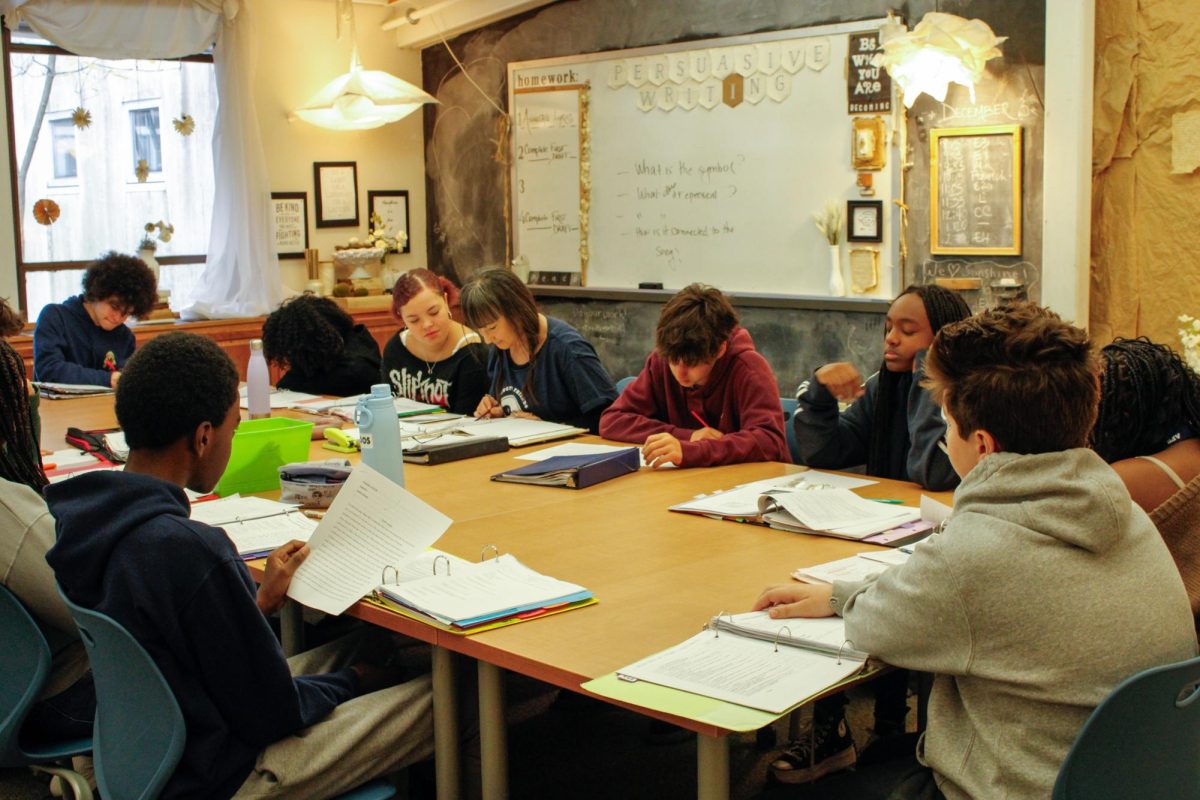
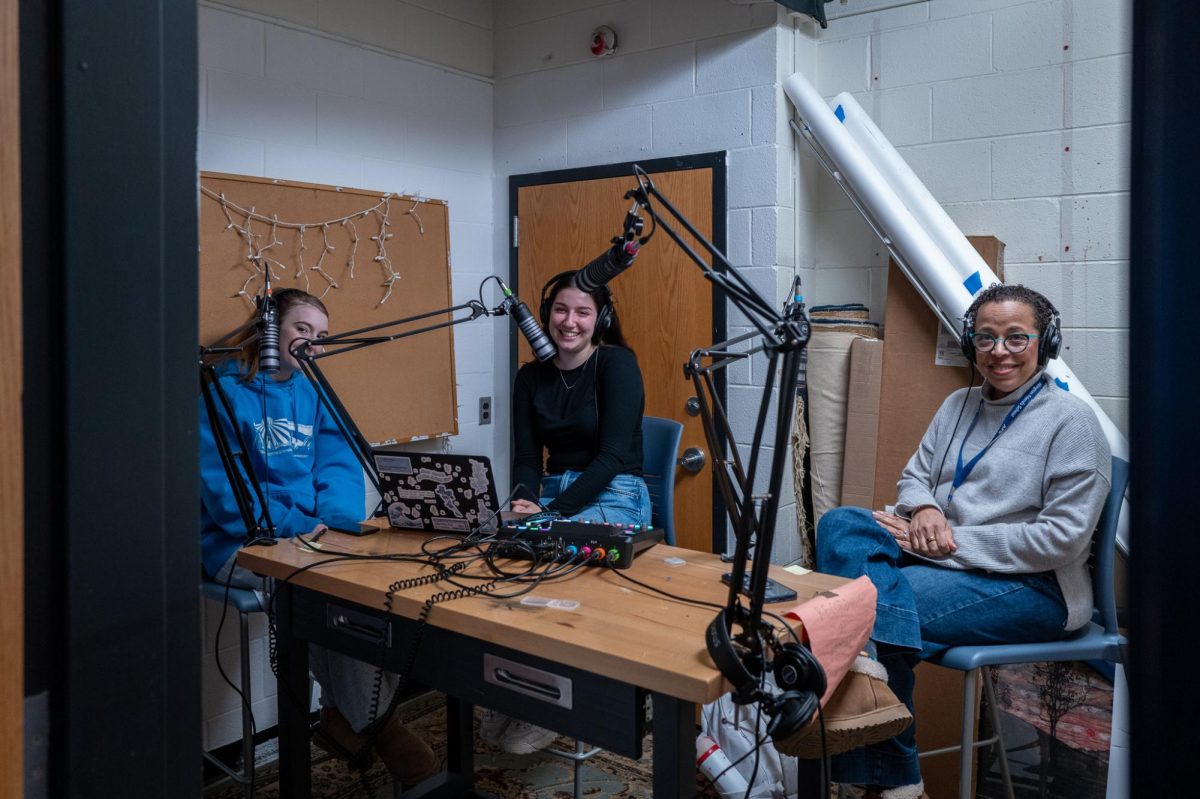
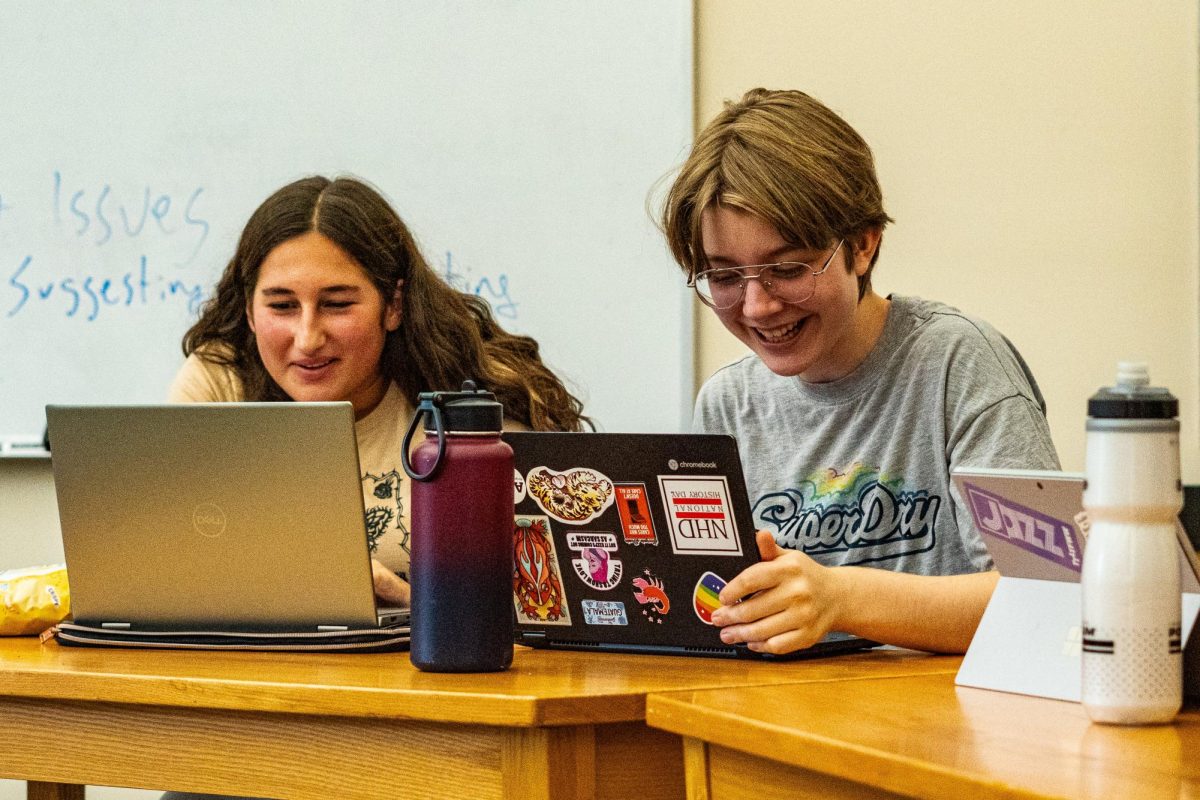
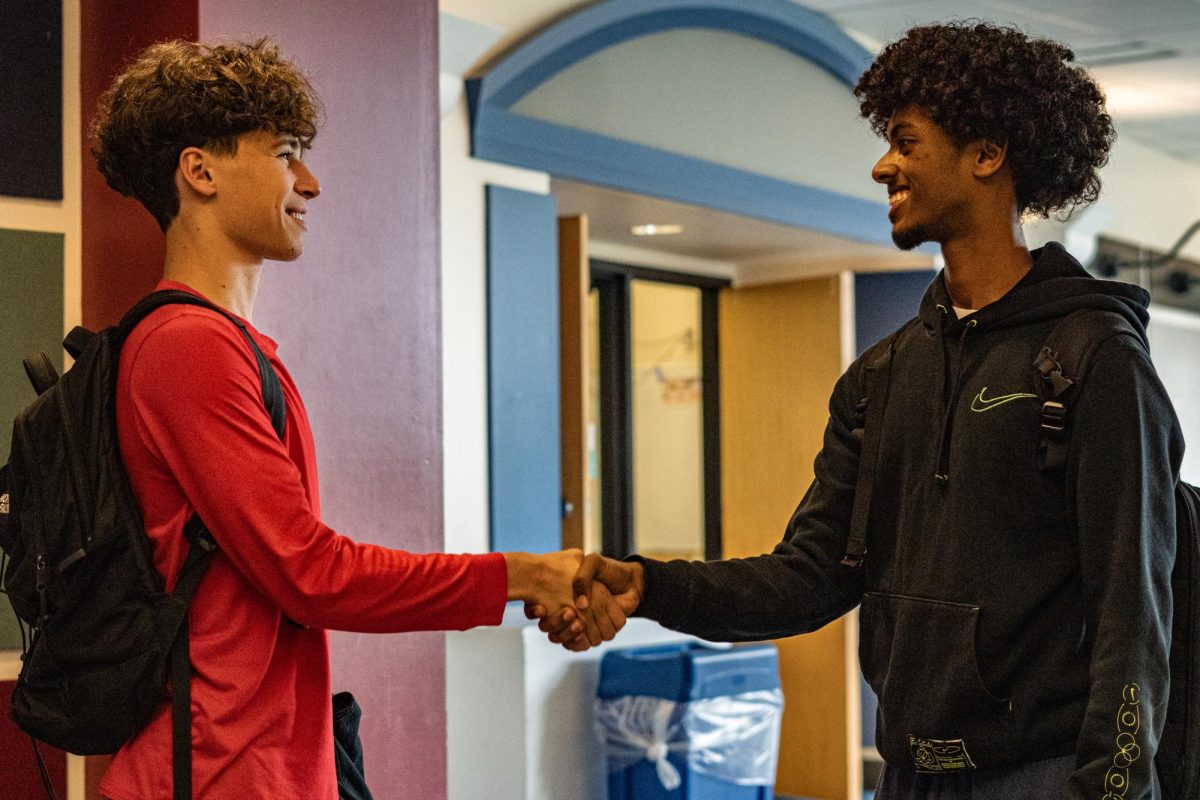



NJ • Oct 15, 2025 at 9:04 pm
It’s crazy to me to think that I’ve been going to a meeting for worship every Wednesday since I was 5. As much as I complain about sitting in science every week I couldn’t imagine not going to MFW and am interested to see what college will feel like. Although I’m not a Quaker, the principles and practices of Quakerism are close to my own values. I think that now more than ever it is important to practice the spices and live life seeking the truth and being a member of the community. In such a divided world it is so important that we find groups of community and build from there.
Anais • Oct 15, 2025 at 2:10 pm
I feel as though politics have always been a controversial topic and therefore it’s been avoided in schools, at family dinners, and even in friend groups. I’m aware that others could feel differently thats just my opinion. I’ve been at this school for a year now and I understand how important community is to the school and how close we all are to each other. Im also aware that Quakers strive for consensus and value every voice. Having those values are not easy especially around politics. I feel as though specifically republicans reflected in office currently strongly disagree with Quaker values and I’m puzzled at how we have to keep an open mind. Quakers have always spoken out against violence and strive for equality and the SPICES. I agree with all those things which is why I don’t understand why we don’t discuss politics or even current events in general more. Overall, I found this article very interesting and I would love to read more about this topic.
Honor • Oct 14, 2025 at 6:06 pm
I agree with the overall perspective that Quakerism isn’t just a laidback way of avoiding conflict. Even though I am not a Quaker, I feel this article hit critical points about what Quakerism teaches us. This helped me change how I imagined people who believed in Quakerism would participate in conversations about politics that aren’t just about avoiding bias. I used to believe that Quakerism mostly avoided sides. This article’s description showed me how they focus more on understanding every side instead of specifically choosing sides, but this doesn’t mean they don’t have opinions. I would say that the closest way I use Quaker values in my life is similar to the article/John, I try to understand every side, even if I don’t agree with them. I usually do this out of curiosity about why they believe what they do and where their opinions about the topic come from. I am especially curious if their opinions come more from facts they’ve heard than a personal opinion with no evidence. I could try to look at every side more often, even when I really don’t want to.
Skyler Tremblay • Oct 14, 2025 at 2:36 pm
I love how the article starts out by addressing a view on Quakerism that just is not true. I completely agree that more people need to put the Quaker values into practice. If you actually take a moment to think about your top values and put them into everyday situations, it can make a huge change in your life. John said, “My obligation is to try to understand, particularly for a message I don’t agree with, where the other person is coming from…” I am glad that you interviewed John in this article as it was very interesting to hear this take.
Maddox • Oct 14, 2025 at 12:04 pm
I use Quaker values in and action in my life when I get into disagreements and arguments with my fellow piers. I put my myself in the mindset of Garnevicus and I think what he would do in that situation. So, in those situations like Garnevicus does I try to see where the person is coming from instead of condoning them. I could keep remembering to implement the Quaker’s values to cultivate future change. The Quaker’s values will help me to live a life where I can except myself, others, and therefore grow as a person. I agree with most of the perspectives shared in the articles especially Garnevicus’s. Quakerism connects to modern politics today by displaying what should be done in plastics when sides disagree. Disagreeing with people is a part of life but it is how you handle disagreement. When people disagree, they should have productive, respectful, and collective conversations where they attempt to understand one another. They should do this instead of resorting to violence or throwing insults at one another.
Asher • Oct 13, 2025 at 8:36 pm
Quakerism isn’t about avoiding conflict, it’s about facing it with empathy and truth. The focus on equality, peace, and listening teaches us to find understanding, even when we disagree. As Garnevicus explained, Quaker practice challenges us to see the “Light” in everyone, not by agreeing with bad\harmful ideas, but by not responding with hate. In a world divided by politics and violence, these values tell us that peace is active, not passive. Our education at AFS gives us the tools to live these ideas, by listening, truth seeking, and meaningful action that helps build a better world.
Leo Gest • Oct 13, 2025 at 2:24 pm
I really like how they interviewed an expert to make sure that they new what they were talking about because sometimes people don’t fully know what they are talking about and I appreciate the willingness to stay true and do some real research. Another thing I appreciate is how they compare and contrast AFS to not only other schools but also analyze and define all of the quaker principles. Another thing that I like is how they help us understand the principles better.
Gabe B. • Oct 13, 2025 at 12:07 pm
This article explains how Quaker beliefs can help people deal with today’s challenges. I agree with the perspectives shared in this article because they emphasize the importance of understanding others, listening to different opinions, and standing up for what’s right, values that are required in today’s world. The article shows how Quaker schools teach students to listen to different viewpoints, even if they don’t agree, creating empathy and respect. This adds to my understanding of Quakerism’s connection to today’s political circumstances by highlighting how Quaker values encourage active engagement in social justice, peace efforts, and respectful dialogue amid political divisions. It also talks about how students and teachers use Quaker values like empathy, kindness, and respect to connect with others, even during hard conversations. The article mentions how Quakers have a history of fighting for justice and peace, showing that their beliefs inspire action, not just words. The message is clear: we should all try to see the good in others, even if we disagree with them. This helps us build a better, more peaceful world.
Joshua M. • Oct 13, 2025 at 11:53 am
I agree with most of the perspectives shared on the fact that quaker schools are built on not just solving the problem the quickest but finding the root issue of the conflict and disposing of it. Quaker schools with this institution have influenced students and students that became political leaders to seek justice and empowerment. One statement from John Garnervicus stands out to me, he said, “You belong equally, as much as anyone else, regardless of how much power they might have in the power structure of the school.” This quote stood out to me the most because at any other school there is a sense of hierarchy but at AFS they teach us that everyone is treated the same and valued equaly. Quakerism shapes social interaction in the learning space but it also shapes the peace of mind for students before they even enter the school. Quakerism teaches us to embrace differences in belief, religion, sex, and race and not to belittle each other.
Paige • Oct 12, 2025 at 11:39 pm
I agree with the perspectives in this article because I like the idea that Quakerism is not about avoiding conflict but using empathy as a way of leaning into it, as well as being true to a commitment of peace. This article helped to strengthen my understanding of Quaker beliefs, and that deep listening is not just a spiritual tool or practice but essential for activism. This article also touches on how Quakerism is not passive, but has very active attributes like valuing truth and the strive to help improve society as a whole. What stood out to me was that there were reminders in this article that disagreement does mean that they lean towards a disconnection. Learning to understand opposing viewpoints can be a very strong form of resistance.
Lilah VanLeer • Oct 12, 2025 at 6:50 pm
This article brings forward great perspective and relevance. I enjoyed reading through because I’m usually more intrigued in student voice articles but something about the use of adult voice gradually immersed me more and more into the article. Something that somewhat surprised me was that my perspective actually ended up shifting a little on Quaker education after seeing John Garnevicus’, Nicole Hood’s, and even political perspectives. After gaining new perspectives, I realized that I love the way that Quaker education has made such a huge impact in my school life and would definitely be interested in seeing how I could incorporate it more into my life outside of Abington Friends School.
Lauren Washington • Oct 12, 2025 at 5:06 pm
I thoroughly enjoyed this article Anjali and Serafina. You both did a great job of articulating your opinions on Quakerism and how it is practiced at AFS. The interviews were great and carefully chosen. The pictures gave the reader a clear idea of what you both were talking about. Plus, I completely agree with all the perspectives shared in this article. Great job!
Roth • Oct 12, 2025 at 3:38 pm
I really liked this article because it showed that Quakerism isn’t just about being quiet or nice all the time. It’s really about standing up for what’s right and trying to understand other people. When Mr. Garnevicus said that in Meeting you don’t have to agree with someone but you should still try to understand them, that really made sense to me. Sometimes I get frustrated when people don’t think like me, but this reminded me to listen more. I also liked how it talked about using Quaker values to deal with problems like violence and hate in the world. It made me think that peace isn’t just about avoiding fights, it’s about trying to help make things better. I think this article was really inspiring.
milan • Oct 9, 2025 at 2:53 pm
I liked this article because it talks about how Quaker beliefs can help people be more understanding in today’s world. I agree with the idea that we should try to see the good in everyone, even if we don’t think the same way. That’s something a lot of people forget, especially when things get political or people argue online.
This article made me realize Quakerism isn’t just about religion, but also about how we treat others every day. It made me think more about being calm, listening, and not judging people right away.
For the questions at the end, I try to use Quaker values by being respectful when I disagree with someone. In the future, I want to work on being more patient and open-minded when talking to others.
Helene M • Oct 7, 2025 at 8:00 am
I completely agree with this message. Quakerism and their many principles and practices set a great example for how to respond to the divisive times of 2025. Pacifism does not mean silence and complacency, it means not resorting to violence or stooping to the levels of the oppressor. In the case of Charlie Kirk, it means refraining from celebrating his death, but still recognising the work he was doing to set back positive change in this country. You can recognise things you disagree with or find harmful without becoming hateful yourself. Quakers preach understanding and seeing the light in others. So even if the “other side’s” light is being used in the attempt to extinguish someone else’s light and their very right to being, you cannot become consumed by that same pure animosity for them. It will only further the divide and cement others in their hate.
Avila Widestrom • Oct 7, 2025 at 7:58 am
While the perspective does not significantly enhance my understanding of Quakerism’s connection to prevailing political circumstances, the arguments on how Quakerism-based strategies can be effectively implemented in our daily lives to resolve political disagreements help to mitigate the political divide. Just by writing the essay in a fashion that will be shared all around, and incorporating things from Perspectives to present their argument on why it should be implemented to help resolve issues, is lessening the political divide throughout the community. By addressing the issue and bringing it to light, there is automatically less of a divide because the issues have been brought to light rather than ignored. Speaker values that are automatically implemented into our daily lives are inherently rooted in AFS’s pedagogy; therefore, I use them in my daily life. Because I have been at the school for so long, I automatically take the space that I need to, and instead of critiquing people, I ask why they have that opinion, which echoes John’s perspective in the paragraph. It depends on the circumstances, but I’m definitely trying to be more educated, consider opposing values, and ask more questions rather than just dismissing them as ignorance and justifying it as the way people are brought up
Nia Hammond • Oct 7, 2025 at 7:41 am
I completely agree with this article because religion in general, but especially Quakerism, can give you principles to guide your life. From my understanding of Quakerism that I have gained over the last 6 years, they use silence to guide their thought process and make informed decisions to find the truth and figure out how they want to take action. It is through this that I believe that Quakerism is powerful. My dad goes to meetings on Sundays and he has told me that they have a lot of discussions about politics and humanity. I believe that Quaker principles and silence give you the space to do that.
Jenny • Oct 7, 2025 at 7:39 am
I totally agree with this article. By reading this article, I got to know better about the obligation during the Meets For Worships. A surprising thing was that turns out Quakerism sought to figure out the truth in the first place—the same thing I would do even using my whole life! Connecting to today’s political circumstances, I actually don’t think that Quakerism influenced much in politics, which I wish it had. Political violence is opposed to our Quaker values, from Europeans’ exploitation and aggressive encroachment in early America, to today’s assassinations due to political considerations. If Quakerism were adopted by all people, the world would become a veritable Utopia.